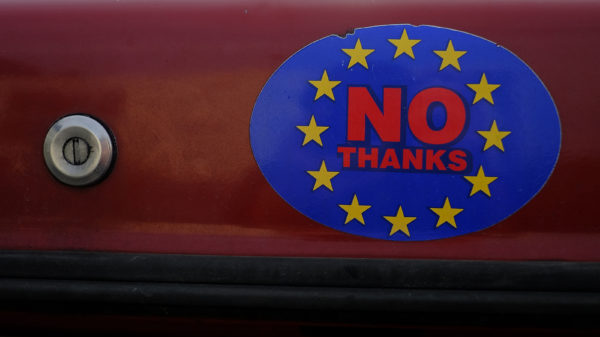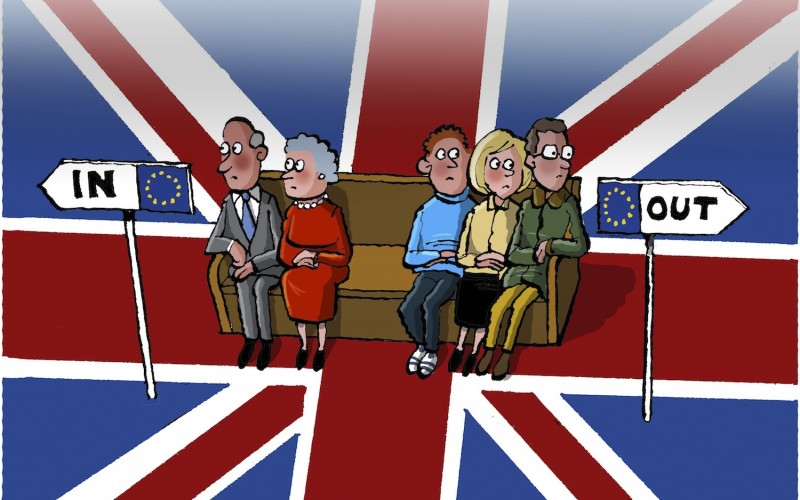EDITORIAL: The Unthinkable “BREXIT” has materialised, so what exactly is it?
6:51am on Friday 24th June 2016. This is the exact time I woke up to the news that the United Kingdom, also known as Britain,…
6:51am on Friday 24th June 2016. This is the exact time I woke up to the news that the United Kingdom, also known as Britain, had left the EU. This is an event that many have now colloquially termed ‘Brexit’, coined from ‘Britain’s exit’ from the European Union. Far from being a phrase uttered in mere speech, Brexit marks the end of a 43 year old marriage between the world’s oldest democracy and the ideological embodiment of social, fiscal and ever greater political union. Brexit is the democratic response to a referendum where the final result was as close as the preceding campaign. The Leave campaign that supported and advocated Brexit relied heavily on the emotive issues of parliamentary sovereignty and immigration which eventually delivered them their victory. Whilst the Remain campaign sought to espouse the economic and social benefits of Britain’s membership of the European Union but ultimately failed to convince enough of the British population.
The eyes of the world have been fixed on the astonishing results of Thursday 23rd June 2016’s referendum. I had family and friends in other parts of the world such as the USA and France asking me the following question- why did Brexit happen? Here is my take on why the unthinkable has become reality.
Initially the new wave of EU immigrants in the mid 2000s was welcomed at a time when Britain’s economy was buoyant. However, the financial crash of 2008 and the fall in living standards fuelled resentments which politicians from all three major British parties were too slow to recognise and respond to. The rise of right wing parties such as UKIP after the 2010 general elections came as a consequence, as they fed upon the dissatisfaction of a growing part of the population towards continued immigration and the perceived strain on public services and welfare. Some Conservative parliamentary candidates wanted to go into the 2015 general election able to assure their own anti-European supporters that only a vote for the Conservatives would give them a chance to have a definitive say over Britain’s future in Europe. And so, in January 2013, Mr Cameron made his fateful pledge of an in/out referendum if the Conservatives won the 2015 election. In doing so, David Cameron made a decision which has altered the course of Britain forever.

A car sticker with a logo encouraging people to leave the EU is seen on a car, in Llandudno, Wales, February 27, 2016. REUTERS/Phil Noble – RTSDHI8
The impact of Brexit has been felt from Britain all around the globe, reverberating like an earthquake from an epicentre spreading outwards to the rest of the world. The S&P Global Broad Market Index (BMI) lost 2.08 Trillion dollars on Friday 24th June 2016, basically, Brexit wiped out over two trillion dollars off the value of global shares worldwide in one day. The FTSE 100 index of leading shares fell 8% after opening in London on Friday. France’s CAC lost 8% of its value and or months. Asia had already tumbled while results from across the UK had flooded in, with Japan’s Nikkei index experiencing its biggest fall since the Fukushima disaster of 2011. The value of the pound has also been hit hard on the foreign exchange markets, tumbling to lows not seen since 1985. At one stage, it hit $1.3305, a fall of more than 10%, although it too slightly recovered to close down 9% at $1.36.
In order to assess the future effects of Brexit, it is important to note that the UK will not leave immediately. The UK is still a member of the EU and will probably remain so for 2 more years. But the vote has already triggered an extraordinary chain of events. On Friday, Brexit spurred leaders of far-right populist parties in the Netherlands and France to reiterate demands for referendums on those countries’ membership in the EU, which would revive yet again the threat of a euro breakup and an accompanying crisis. Donald Trump, the presumptive Republican nominee, drew parallels to his own campaign: “People want to take their country back,” he said in Scotland on Friday.
There is a formal legal process for withdrawing from the EU – enshrined in Article 50 of the 2009 Lisbon Treaty – although it has never been invoked before. Once Article 50 is activated, the UK is cut out of EU decision-making at the highest level and there will be no way back unless by unanimous consent from all other member states. Leaving the EU is not an automatic process – it has to be negotiated with the remaining 27 members and ultimately approved by them by qualified majority. These negotiations are meant to be completed within two years although many believe it will take much longer. The European Parliament has a veto over any new agreement formalising the relationship between the UK and the EU.
In conclusion, the impact of Brexit is that Britain is leaving the European Union. Nevertheless, Britain will need to embrace a new relationship with Europe and build stronger ties with the rest of the world. In implementing Brexit and facing the challenges ahead; the UK needs negotiations that increase its prestige abroad, maintains fair social and civic rights within society and working with other countries to strengthen the economy and prosperity of the nation for future generations.
Disclaimer: The views, opinions and positions expressed by the authors and those providing comments, opinions on this website are theirs alone, and do not necessarily reflect the views, opinions or positions of M-Lifestyle and their affiliates. M-Lifestyle does not claim ownership of any images used, unless otherwise specified.
![]()






